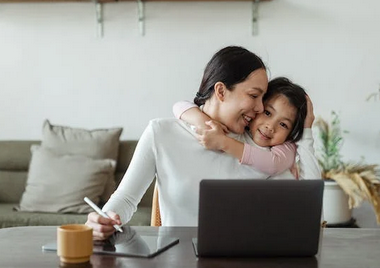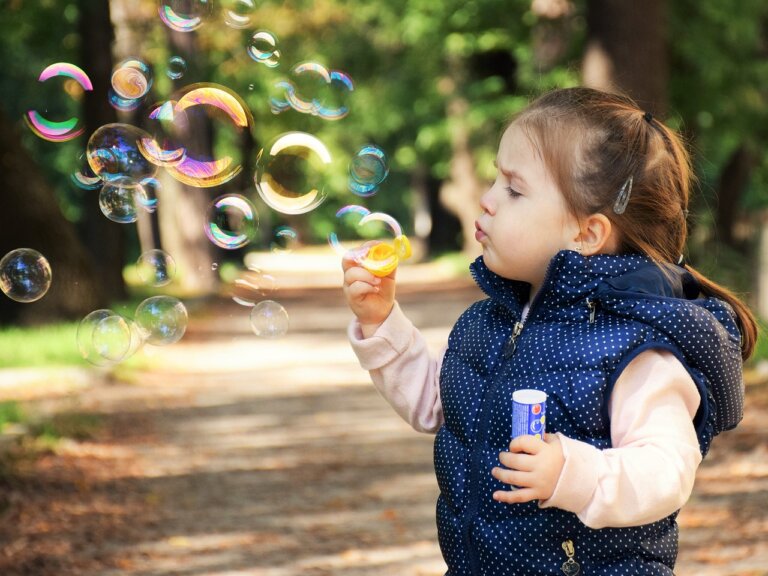Feeling out of touch, distracted, or stressed out? I’d like to invite you on a mindful journey!

Embarking on a transformative experience that allows you to cultivate a deeper sense of awareness and presence in your daily life.
Doesn’t that sound lovely?
What is a Mindful Journey?
Mindfulness is the practice of intentionally paying attention to the present moment without judgment. It is about observing your thoughts, emotions, and sensations with curiosity and kindness.
By practicing mindfulness, you can develop a greater understanding of your inner thoughts and external experiences.
Mindfulness involves focusing your attention on the here and now, rather than dwelling on the past or worrying about the future.
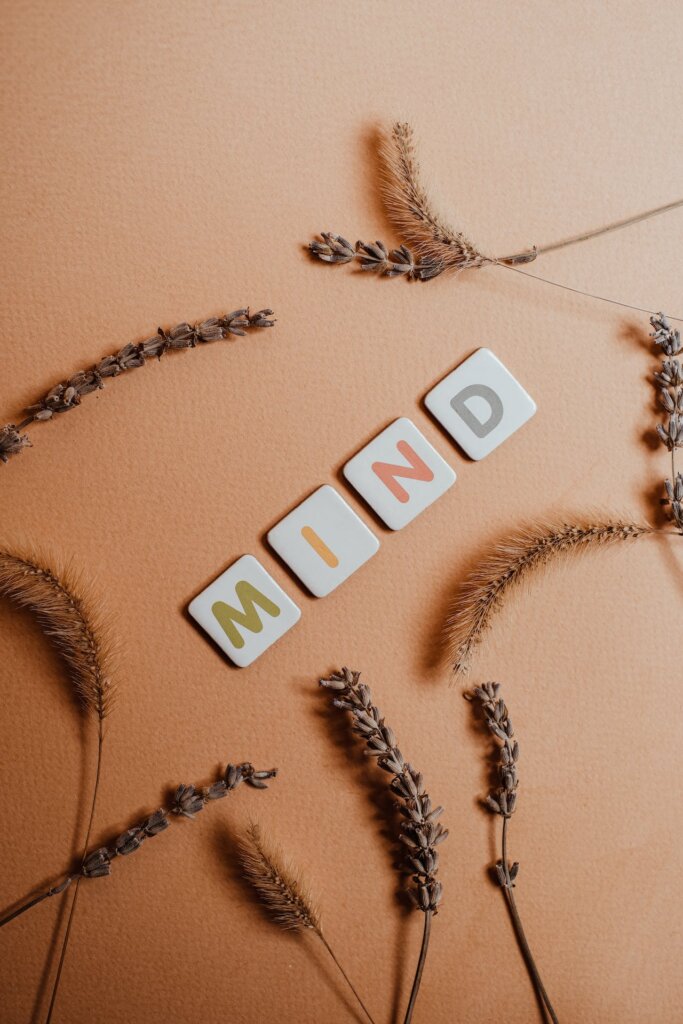
It is about fully engaging with the present moment, accepting it as it is, and embracing each experience with openness and calmness
The Importance of Starting a Mindful Journey
In a fast-paced and often isolating culture, the relevance of mindfulness has become more prominent than ever before.
Let’s explore how mindfulness impacts our personal lives and the role it plays in our professional endeavors.
The Impact of Mindfulness on Personal Life
In our personal lives, mindfulness offers a myriad of benefits that can enhance our overall well-being and quality of life.
By cultivating a mindful approach to life, we gain a deeper understanding of ourselves and the world around us.

Here’s how mindfulness can positively impact our personal journey:
- Reducing Stress and Anxiety: Mindfulness allows us to bring our attention to the present moment, enabling us to let go of worries about the future or regrets about the past. This practice has been shown to reduce stress and anxiety, promoting a greater sense of calm and balance.
- Improving Mental Health: Mindfulness has proven effective in managing and preventing mental health conditions such as depression and anxiety disorders. By practicing mindfulness, we develop greater self-awareness, emotional resilience, and the ability to navigate challenging emotions with greater ease.
- Enhancing Relationships: Mindfulness fosters deep listening and empathy, enabling us to truly connect with others on a meaningful level. By being fully present in our interactions, we can cultivate stronger relationships, improve communication, and foster a sense of compassion towards others.

The Role of Mindfulness in Professional Life
Mindfulness can also have a significant impact on our professional endeavors.
Employing mindfulness techniques in the workplace can lead to increased productivity, improved decision-making, and a more positive work environment.
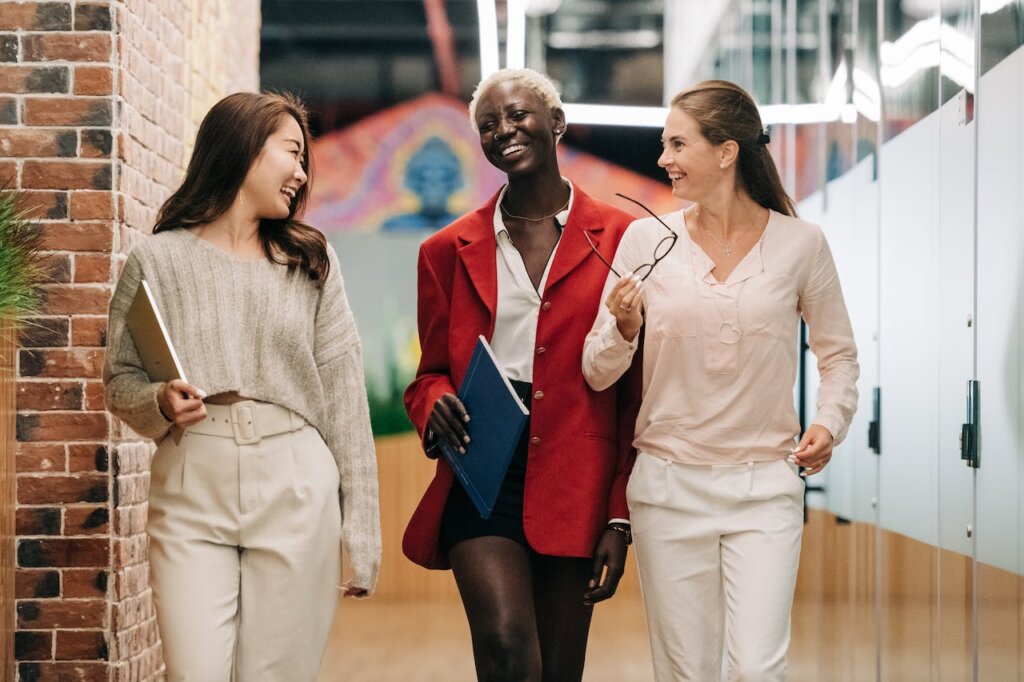
Consider the following ways in which mindfulness plays a role in your professional life:
- Boosting Focus and Concentration: By practicing mindfulness, we train our minds to stay focused on the task at hand. This heightened focus allows us to work more efficiently, complete tasks with greater accuracy, and minimize distractions.
- Promoting Emotional Intelligence: Mindfulness enhances our emotional intelligence, enabling us to manage workplace stress and interpersonal conflicts with greater ease. By being present and aware of our emotions, we can respond to challenges in a more measured and thoughtful manner.
- Fostering Creativity and Innovation: When we approach our work mindfully, we tap into our innate creativity and innovation. By quieting the constant chatter of our minds, we create space for new ideas to emerge and think outside the box.
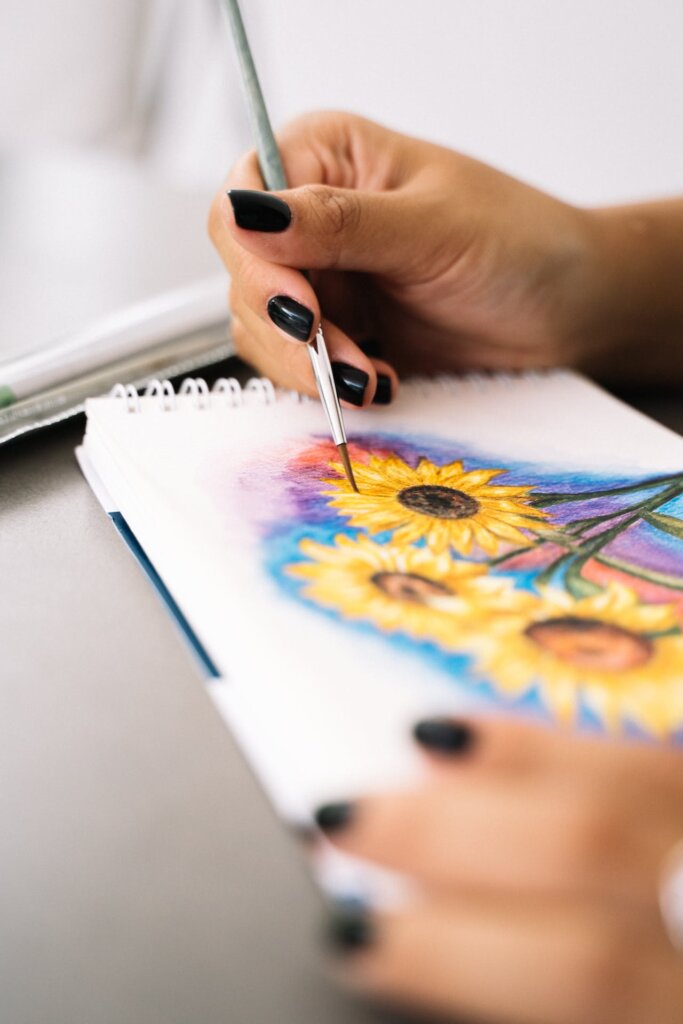
Who’s ready to get all this goodness started?
How Do I Start a Mindfulness Journey?
Mindfulness and meditation are powerful practices that can bring numerous benefits to your life.
If you’re new to this journey, it’s important to understand the importance of patience and perseverance, as well as some simple techniques to begin your mindful journey.
The Importance of Patience and Perseverance
It’s essential to remember that mindfulness is a skill that develops over time with consistent practice. Just like any new skill, it takes effort and dedication to see progress.
During your mindful journey, you may encounter obstacles, distractions, or moments of frustration.
However, it’s crucial to approach these challenges with patience and a willingness to persevere. Understand that progress may be gradual, and setbacks are normal.
Embrace the process and trust that each moment of practice brings you closer to experiencing the benefits of mindfulness.
Simple Techniques to Begin the Journey
To start your mindful journey, here are a few simple techniques you can incorporate into your daily life:
Breathing Exercises
One of the fundamental aspects of mindfulness is paying attention to your breathing. Take a few moments each day to focus on your breath and observe its natural rhythm.

This practice helps anchor you to the present moment and cultivates a sense of calm.
Body Scan Meditation
A body scan meditation involves systematically bringing awareness to each part of your body.
Begin by focusing on your toes and gradually move your attention up to the top of your head.
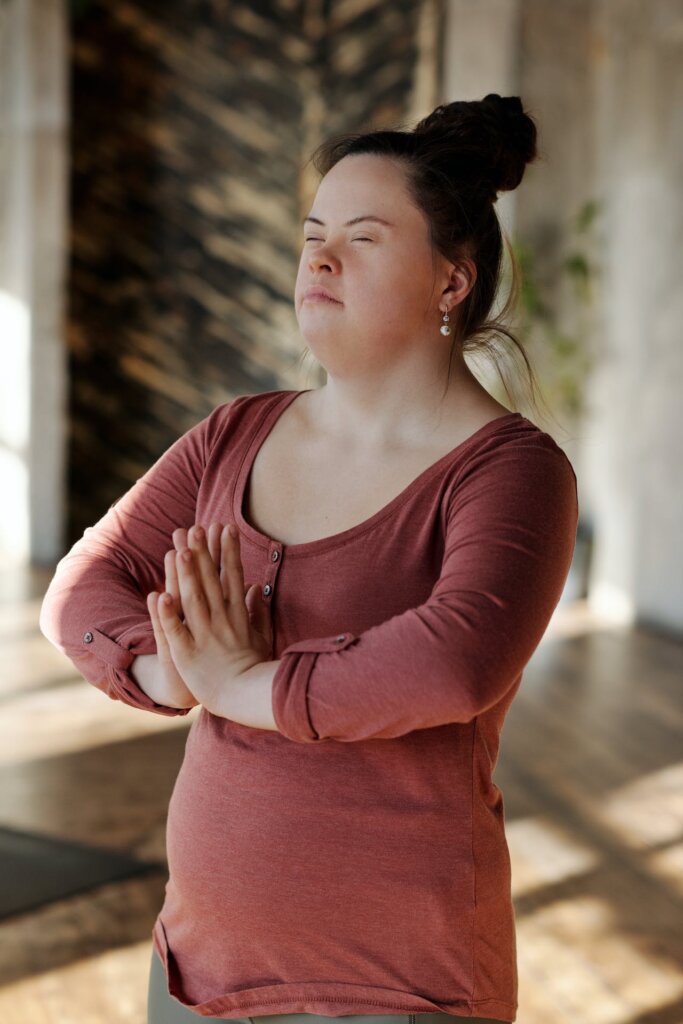
Notice any sensations or areas of tension without judgment. This practice promotes body awareness and relaxation.
Mindful Walking
Engage in mindful walking by taking a leisurely stroll and paying attention to each step.

Notice the movement of your feet, the sensation of the ground beneath you, and the surrounding environment. Allow your senses to be fully present in the experience.
Guided Meditation/Prayer
Utilize guided meditations, prayers or mindfulness apps to support your practice.

These resources provide structured guidance, helping you cultivate mindfulness and explore different techniques.
Mindful Eating
Start by taking a moment to appreciate the appearance, aroma, and texture of your food.
Slow down and chew your food thoroughly, savoring each bite and noticing the flavors and sensations.
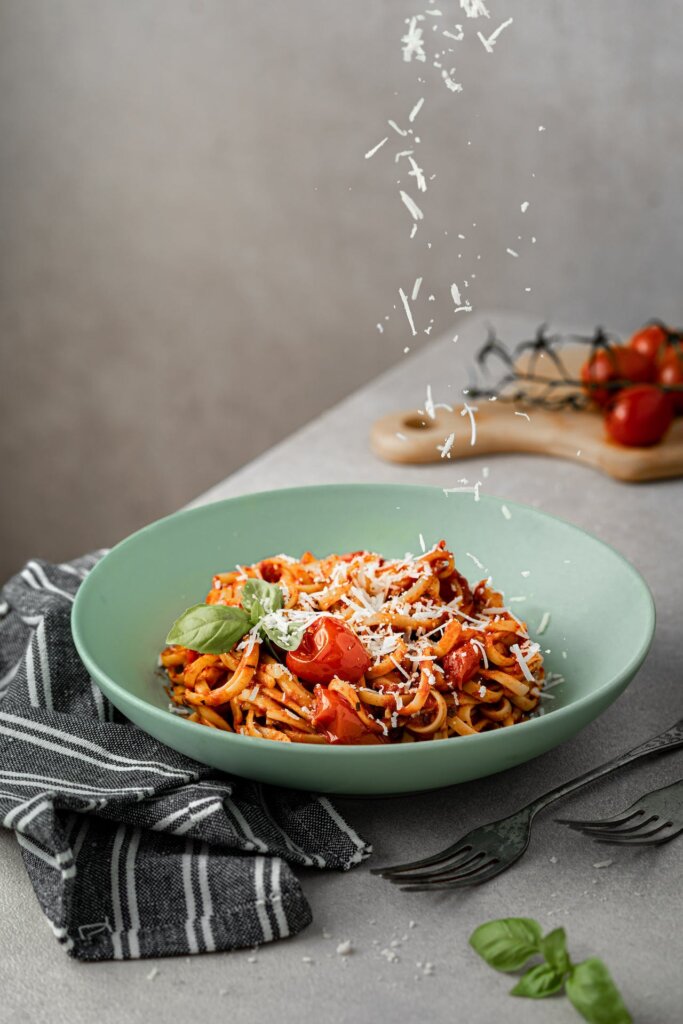
Pay attention to the signals of hunger and fullness, and listen to your body’s cues to eat until you are satisfied, not overly full.
Gratititude Journal
Taking the time to focus on what you have to be grateful for is a key element in the mindful journey process.

Here’s an article on journaling for beginners if you’d like to get started!
Mindfulness in Interactions with Others
By practicing mindful interactions, we can enhance our communication skills, deepen our connections, and foster more meaningful relationships.
When engaging in a conversation, try to focus your attention fully on the person speaking, without interrupting or mentally preparing your response.
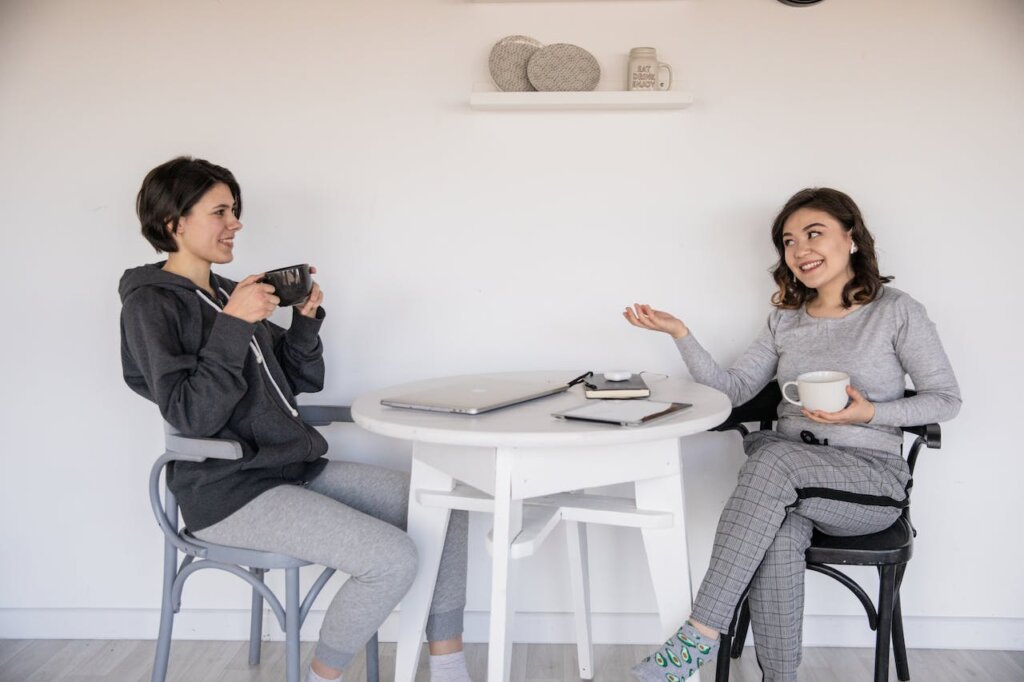
Practice empathy and compassion, seeking to understand the other person’s perspective and feelings.
Mindful interactions also involve being aware of our own emotions and reactions in social situations.
Take a moment to pause and observe your internal state before responding, allowing yourself to choose a thoughtful and considerate response rather than reacting impulsively.
Overcoming Obstacles Along the Mindful Journey
In our mindful journey, we may encounter several obstacles that challenge our ability to stay present and centered.
These obstacles can come in various forms, such as distractions, stress and anxiety, and negative emotions.
However, by developing the right strategies and mindset, we can overcome these obstacles and continue on our mindful path.
Dealing with Distractions
Distractions are one of the biggest hurdles to maintaining mindfulness.
In our fast-paced and digitally connected world, it’s easy to get pulled away from the present moment by notifications, social media, or other external stimuli.

To combat this, it’s important to cultivate a keen awareness of our attention and practice redirecting it.
Here’s an article on a digital detox if you need help with this!
One effective strategy is to create a designated space or time for mindfulness practice. Find a quiet corner in your home or office where you can retreat to without distractions.
Establish a routine and set aside dedicated time to engage in mindful activities, such as meditation, prayer or deep breathing exercises.
By consciously carving out this space and time, you can train your mind to focus and let go of external distractions.

Additionally, incorporating mindfulness into everyday tasks can help combat distractions.
Whether it’s washing dishes, walking, or eating a meal, bring your full attention to the present moment.
Notice the sensations, sounds, and emotions that arise during these activities.
By doing so, you cultivate a habit of mindfulness in the midst of daily life, making it easier to resist distractions and stay present.
Managing Stress and Anxiety
Stress and anxiety are common experiences that can hinder our mindful journey. When we feel overwhelmed or consumed by worry, it becomes challenging to stay present and grounded.
However, there are effective techniques that can help us manage and alleviate these emotions.

Incorporating relaxation techniques such as deep breathing exercises, progressive muscle relaxation, or guided imagery can assist in managing stress and anxiety. These practices activate the body’s relaxation response, counteracting the physiological effects of stress.
By observing stressful or anxious experiences without clinging to or pushing them away, we can cultivate a sense of calm and acceptance.
Handling Negative Emotions
Negative emotions, such as anger, sadness, or fear, can derail our mindful journey if left unaddressed. It’s important to acknowledge and honor these emotions, rather than suppressing or denying them.
By allowing ourselves to fully experience and investigate these emotions with mindfulness, we can gain valuable insights and foster emotional resilience.

One approach to handling negative emotions is through the practice of RAIN (Recognize, Accept, Investigate, Non-Identification or Nuture.
RAIN involves recognizing the presence of negative emotions, accepting them without judgment, investigating their underlying causes and effects, and ultimately not identifying with them as our true selves.
Mindful Journey Counseling
Mindful Journey Counseling is a specialized approach to therapy that focuses on integrating mindfulness techniques into the counseling process.
This innovative form of therapy combines traditional counseling methods with mindfulness practices, allowing individuals to develop a deeper awareness of their thoughts, emotions, and behaviors.
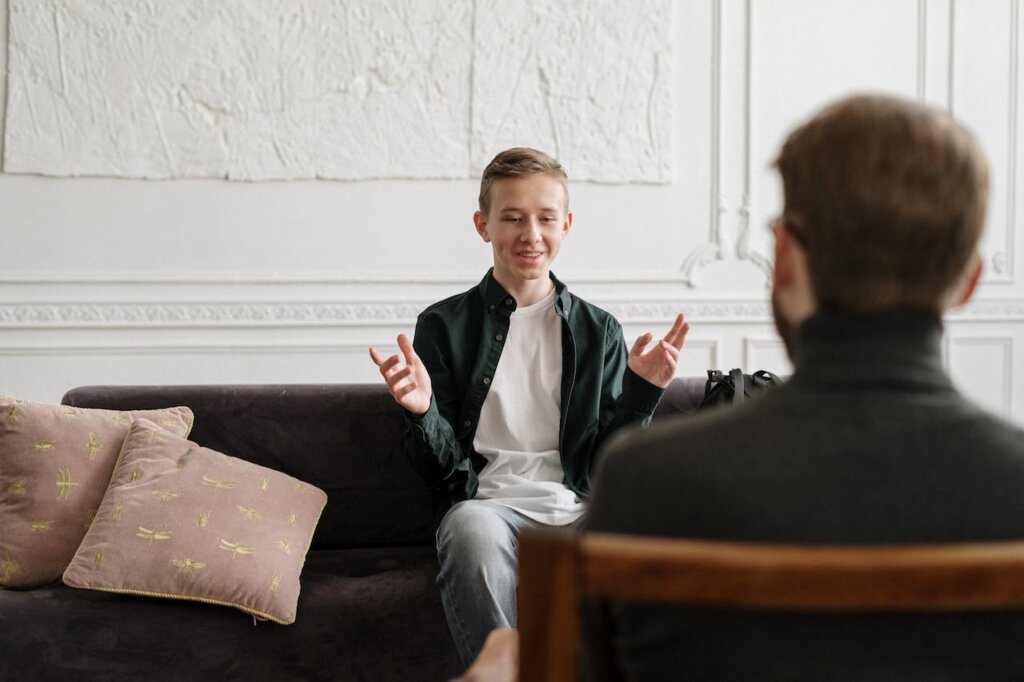
Benefits of Mindful Journey Counseling
- Enhanced self-awareness: Through Mindful Journey Counseling, individuals are encouraged to observe their thoughts and emotions without judgment. This heightened self-awareness offers valuable insights into recurring patterns and triggers, paving the way for personal growth and transformation.
- Reduced stress and anxiety: Mindfulness techniques, such as deep breathing exercises and guided meditation, can effectively reduce stress and anxiety. By learning to stay present in the moment and detach from negative thoughts, individuals can experience a greater sense of calm and emotional well-being.
- Improved emotional regulation: Mindful Journey Counseling equips individuals with the skills to manage their emotions effectively. By learning to acknowledge and accept their emotions without being overwhelmed by them, individuals can cultivate healthier coping mechanisms and develop a greater sense of emotional balance.
- Enhanced communication and relationships: Mindfulness practices foster improved communication by cultivating active listening skills and encouraging individuals to respond thoughtfully rather than react impulsively. This can lead to more successful and fulfilling relationships both personally and professionally.
How Mindful Journey Counseling Works
In Mindful Journey Counseling, therapists work collaboratively with individuals to explore their thoughts, emotions, and experiences.
Here is a step-by-step breakdown of how this type of counseling works:
- Assessment: The therapist conducts an initial assessment to gain an understanding of the individual’s unique needs and background. This helps to establish a foundation for the counseling process and identify specific areas of focus.
- Mindfulness training: Individuals are introduced to various mindfulness techniques such as meditation, mindful breathing, and body scan exercises. These practices serve as tools to cultivate present-moment awareness and self-compassion.
- Identifying patterns: Through open dialogue and reflection, individuals and therapists work together to identify recurring patterns, triggers, and unhelpful coping mechanisms. This self-awareness forms the basis for personal growth and transformation.
- Exploration of emotions: Mindful Journey Counseling creates a safe space for individuals to explore and process their emotions. Therapists provide guidance and support as individuals learn to acknowledge, accept, and respond to their emotions in healthy and constructive ways.
- Integration of mindfulness: Mindfulness techniques are integrated into daily life routines to promote ongoing self-awareness and emotional regulation. Individuals are encouraged to apply mindfulness practices in real-life situations to reinforce positive change and personal growth.
- Ongoing support: Mindful Journey Counseling is a dynamic and ongoing process. Therapists provide continued support, guidance, and encouragement as individuals navigate their unique journeys towards improved well-being.
By incorporating mindfulness techniques into the counseling process, Mindful Journey Counseling offers a holistic approach that addresses the mind, body, and spirit.
This integrative approach can lead to profound personal growth, enhanced self-understanding, and a greater overall sense of well-being.
Conclusion
In conclusion, embarking on a mindfulness journey can greatly enhance your overall well-being and quality of life.
By practicing mindfulness techniques regularly, you can cultivate a greater sense of self-awareness, reduce stress levels, and improve your ability to focus and concentrate.
Remember, mindfulness is a lifelong practice, so be patient with yourself and embrace the process of self-discovery.
Have an aspect of mindfulness you’re really enjoying? Tell me all about it in the comments below!
New to this style of living? Here are some helpful articles just for you!
Until next time, stay cozy my friend.
